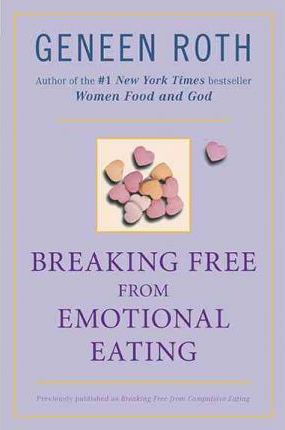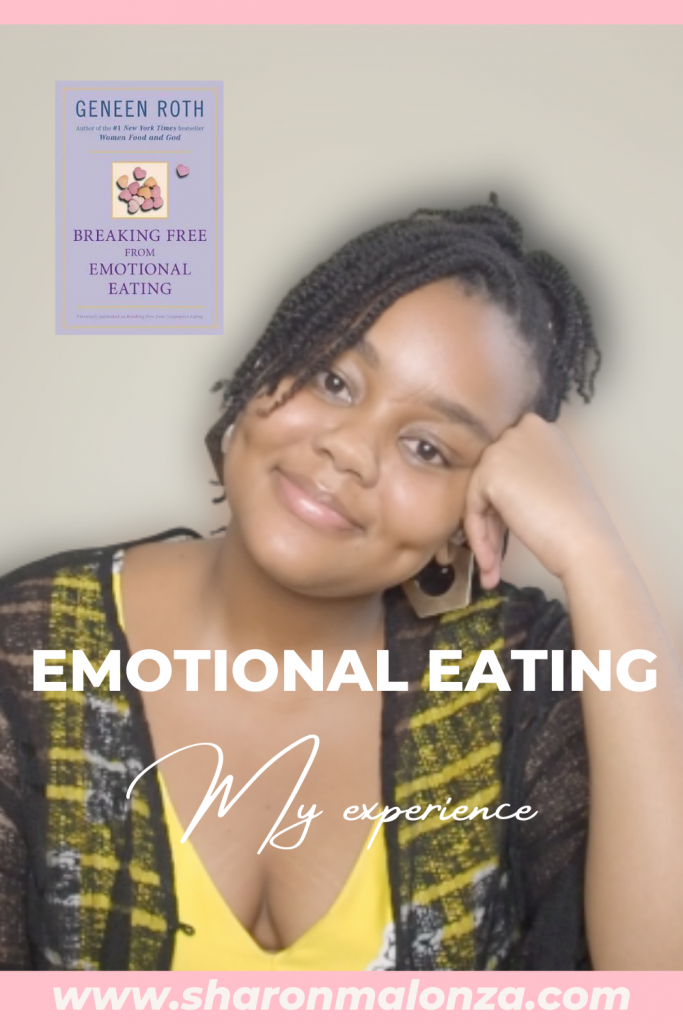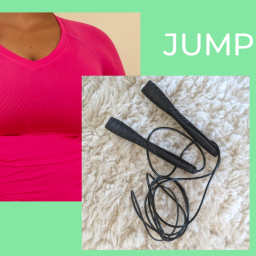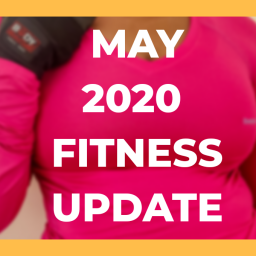I know this post may not be relatable for people who have a “normal” relationship with food. However, it may help you better understand someone in your life who may have a similar relationship to food as I do.
I mentioned in my 8WW challenge post that it has not been enough for me to just “decide” to eat healthier for years because I realized my eating patterns are heavily tied to everything but physical hunger.
Along came Breaking Free From Emotional Eating by Geneen Roth. I don’t remember how I came across this book but it has honestly changed my life.

The title gives the concept away. This book takes the idea of “intuitive eating” or ” mindful eating” and stretches this concept out to the most minute details you could ever think of.
Table of Contents
What is emotional eating?
Geneen puts it this way:
” Everyone eats sometime during their lives because food is available and it tastes good and they don’t know what else to do or how to deal with their feelings. The difference between them and you is that they don’t punish themselves for hours or days afterward.”
Geneen Roth
This book pushed me to ask myself “WHY AND WHAT DO YOU EAT WHEN YOU’RE NOT HUNGRY?”
Compulsive eating
I’ve been a part of what Geneen calls the “clean plate club” for years and I mentioned it in my first blogpost on my fitness journey in March 2020. Since I was kid, I was taught to finish what’s on my plate and not waste food. So in the book Geneen has an argument on a date about this. The guy says that he must finish what is on his plate because he defines waste as “anything that’s squandered or misused. Anything left over that really could be used by the person who is leaving it over.”
My girl Geneen comes for his neck with this argument:
You are often not in control of the size of your portions or how hungry or full you are at a given point. If you’re at a restaurant or someone’s home, the portions you receive may not be synchronous with your hunger:When you finish all your food all the time without regard to your body, which is, after all, what you are feeding, that’s compulsive. Compulsive is when you are driven to do something that is out of touch with the present situation. You give up your choice. And then you relinquish responsibility for your weight because when you eat more than your body needs; it’s like squandering, it turns the food to fat. Fat is excess. And isn’t that, according to your definition, waste?
Geneen Roth
What is this book about?
Yes, this book is about emotional eating but on a much larger scale, it is about trust. Trusting yourself and your body enough to listen to it, to acknowledge what it wants and needs and by extension, you’re acknowledging your bigger desires and wants.
Before reading this book, I knew that my eating habits need to be addressed. I’ve probably known this since I was 8 or 9 years old. But there was never an avenue/platform/book that gave me the means to pursue this beyond fitness and nutrition ones that are selling you one diet or another. And we all know that in that space, there is a more accusatory tone to eating: “You eat too much and/or badly because you lack discipline. Because you are lazy and unmotivated. So fix that.“
My health matters to me because how I relate with myself consciously and unconsciously impacts how I relate with everything and everyone around me. And I am tired of pursuing the best “diet” even from a medically accurate perspective. It hasn’t solved my problem. It doesn’t address why I eat my feelings.
I think one huge misconception people have about emotional eating is that it is only linked to “negative” emotions and that’s not true for everyone..at least not for me. I eat when I’m happy and excited too, especially in social settings.
How I read this book
I read this book in March. I took it slowly: a chapter a day and took notes that I divided into ; quotes i liked, journaling prompts and actionable steps.
I made an emotional eating journal and added any actionable step as it’s own column and I went along.
It is now May so I’ve been tracking my eating on and off since then. It’s one thing to just write out what you are eating and when you ate which I think is where most nutrition programs stop.
This book asks you to track your eating based on so many variables like:
- Was i hungry before i ate? if yes, how hungry on a scale of 1-10 ?
- If not, why did I eat anyway? What did I eat?
- Did I want to eat what I actually ate?
- Did I want to eat it because it hummed to me or it beckoned to me?
- Where did I eat?
- Who did I eat with?
- Was I distracted while eating?
- How did I feel during and after eating?
- Was I full afterwards? how full was I?
I am not going to answer all those questions for you but she gives a lot of answers in the book from people who attended her workshops and they are extremely relatable.
My key-takeaways
The point of this post was to share a snippet into my relationship with food and how I am navigating it with the tools that this book gave me. The book won’t “cure your emotional eating”. It won’t do the soul work for you but it will give you A LOT to reflect on and consider. You might not agree with all of it and you might feel extremely attacked the entire time, like I was.
But if you want to improve your relationship with food, go into it with an open mind. Also, to the extent that is possible , be non judgmental with yourself . If it helps to treat this as an experiment , then do so and make observations as you go along. There are no right or wrong results. And also with something like this that I’ve been doing for over a decade, my patterns are not going to change overnight.
My favorite quotes from the book
- A balance exists, however, between not depriving yourself of the food you want when you are hungry and using food to make up for all the other ways you feel deprived.
- When you find yourself doing something that doesn’t seem to make sense, assume that it does. Then ask yourself what you are trying to do or say by your actions. How is what you’re doing helping you? What is it saying for you?
- Breaking free from emotional eating is also breaking free from preoccupation with the future. It asks, it demands that you be aware of what you are doing now. It forces you to examine, by the very question it asks, the ways in which you rush through your meals-and your days-in perpetual pursuit of moments that may never arrive.
I love that even if this book focuses on nutrition, the approach used can be applied to almost anything you do in your day to day life. It forces you to be present in all your actions. It has been a perfect toolkit to pair with my ongoing fitness and nutrition journey so that I’m doing both the external and internal work.
Share your thoughts with me in the comments below.
Thanks for stopping by!
“Always remember that your hair is your crown and your body is a temple; embrace it, love it and take care of it.”




